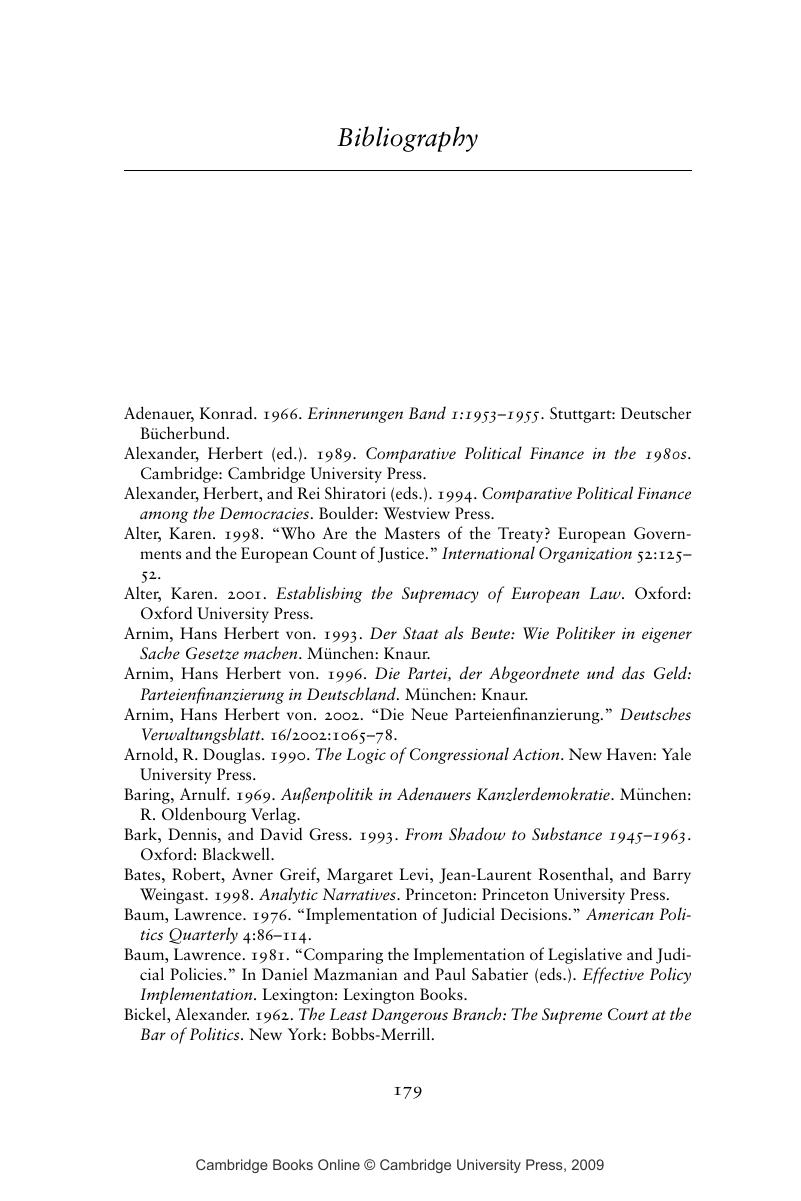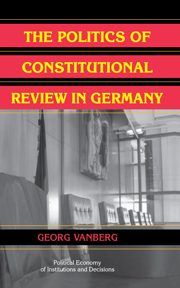Book contents
- Frontmatter
- Contents
- Acknowledgments
- Titles in the series
- 1 The Politics of Constitutional Review
- 2 Implementation, Public Support, and Transparency
- 3 The Federal Constitutional Court in Comparative Perspective
- 4 Transparency and Judicial Deference
- 5 From the Inside Looking out: Judicial and Legislative Perceptions
- 6 Pushing the Limits: Party Finance Legislation and the Bundesverfassungsgericht
- 7 Prudent Jurists
- Bibliography
- Index
- References
Bibliography
Published online by Cambridge University Press: 11 July 2009
- Frontmatter
- Contents
- Acknowledgments
- Titles in the series
- 1 The Politics of Constitutional Review
- 2 Implementation, Public Support, and Transparency
- 3 The Federal Constitutional Court in Comparative Perspective
- 4 Transparency and Judicial Deference
- 5 From the Inside Looking out: Judicial and Legislative Perceptions
- 6 Pushing the Limits: Party Finance Legislation and the Bundesverfassungsgericht
- 7 Prudent Jurists
- Bibliography
- Index
- References
Summary

- Type
- Chapter
- Information
- The Politics of Constitutional Review in Germany , pp. 179 - 188Publisher: Cambridge University PressPrint publication year: 2004
References
- 1
- Cited by



